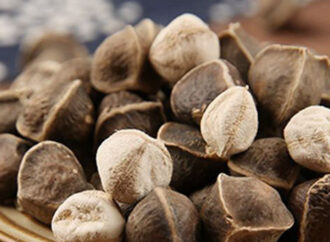 Food Manifest
Food Manifest
The house of resource for food safety.
Antioxidants
- Home
- Antioxidants

Cold Water Wins: The Safest Way to Clean Your Veggies0
- A to Z, Food Hygiene, Food Safety, General, Health & Wellness, News
- December 1, 2025
Overview Food safety experts agree that cold running water is still the most reliable way to clean fresh vegetables. A recent study found that a two-minute soak followed by thorough rinsing removes the most surface bacteria, especially when paired with gentle scrubbing. The approach is simple, effective, and safe for everyday kitchens. Cold Water Cleans
READ MORE
Microgreens: Tiny Greens with Big Health and Food Safety Benefits0
- A to Z, Event, Food Hygiene, Food Safety, General, Health & Wellness, News
- August 2, 2025
At a Glance Microgreens—small edible greens harvested shortly after germination—are making a big splash in kitchens, restaurants, and social media feeds. Known for their bold flavours and rich nutritional profile, these miniature greens are fast becoming a favourite among health-conscious consumers and chefs. But beyond the buzz lies an important angle: food safety. What Are
READ MORE
Moringa Seeds: The Tiny Superfood Making a Big Impact0
- A to Z, Event, Food Hygiene, Food Safety, Health & Wellness, News
- June 4, 2025
Overview Often celebrated as the “miracle tree,” moringa is once again in the spotlight—this time, for its seeds. Experts are hailing moringa seeds as a nutrient-rich superfood that supports immunity, heart health, and more. Packed with protein, antioxidants, and essential nutrients, these seeds are gaining popularity as a powerhouse of health benefits. Nutritional Goldmine in a
READ MORE

Green Tea Uncovered: Benefits, Risks, and What You Should Know0
- Food Safety, General, Health & Wellness
- February 12, 2025
Green tea has long been praised for its numerous health benefits, from its rich antioxidant content to its potential for supporting weight loss and improving heart health. Packed with essential nutrients, including epigallocatechin gallate (EGCG), green tea offers a variety of health benefits. However, understanding not just the health benefits but also the potential risks
READ MORE
Oxidation in Food: Effects, Risks, and Prevention0
- A to Z, Food Safety, General, Health & Wellness
- January 22, 2025
Oxidation is a natural chemical reaction that occurs when food comes into contact with oxygen. This process significantly impacts the quality, safety, and shelf life of food. While oxidation is a part of nature, its effects can result in unpleasant changes in taste, texture, appearance, and nutritional value. From rancid oils to vitamin degradation and
READ MORE















